第14章
Is it to be, that, in the future, machinery and the captive motor-forces of nature are largely to take the place of human hand and foot in the labour of clothing and feeding the nations; are these branches of industry to be no longer domestic labours?--then, we demand in the factory, the warehouse, and the field, wherever machinery has usurped our ancient labour-ground, that we also should have our place, as guiders, controllers, and possessors.Is child-bearing to become the labour of but a portion of our sex?--then we demand for those among us who are allowed to take no share in it, compensatory and equally honourable and important fields of social toil.Is the training of human creatures to become a yet more and more onerous and laborious occupation, their education and culture to become increasingly a high art, complex and scientific?--if so, then, we demand that high and complex culture and training which shall fit us for instructing the race which we bring into the world.Is the demand for child-bearing to become so diminished that, even in the lives of those among us who are child-bearers, it shall fill no more than half a dozen years out of the three-score-and-ten of human life?--then we demand that an additional outlet be ours which shall fill up with dignity and value the tale of the years not so employed.Is intellectual labour to take ever and increasingly the place of crude muscular exertion in the labour of life?--then we demand for ourselves that culture and the freedom of action which alone can yield us the knowledge of life and the intellectual vigour and strength which will enable us to undertake the same share of mental which we have borne in the past in physical labours of life.Are the rulers of the race to be no more its kings and queens, but the mass of the peoples?--then we, one-half of the nations, demand our full queens' share in the duties and labours of government and legislation.Slowly but determinately, as the old fields of labour close up and are submerged behind us, we demand entrance into the new.
We make this demand, not for our own sakes alone, but for the succour of the race.
A horseman, riding along on a dark night in an unknown land, may chance to feel his horse start beneath him; rearing, it may almost hurl him to the earth: in the darkness he may curse his beast, and believe its aim is simply to cast him off, and free itself for ever of its burden.But when the morning dawns and lights the hills and valleys he has travelled, looking backward, he may perceive that the spot where his beast reared, planting its feet into the earth, and where it refused to move farther on the old road, was indeed the edge of a mighty precipice, down which one step more would have precipitated both horse and rider.And he may then see that it was an instinct wiser than his own which lead his creature, though in the dark, to leap backward, seeking a new path along which both might travel.(Is it not recorded that even Balaam's ass on which he rode saw the angel with flaming sword, but Balaam saw it not?)In the confusion and darkness of the present, it may well seem to some, that woman, in her desire to seek for new paths of labour and employment, is guided only by an irresponsible impulse; or that she seeks selfishly only her own good, at the cost of that of the race, which she has so long and faithfully borne onward.But, when a clearer future shall have arisen and the obscuring mists of the present have been dissipated, may it not then be clearly manifest that not for herself alone, but for her entire race, has woman sought her new paths?
For let it be noted exactly what our position is, who today, as women, are demanding new fields of labour and a reconstruction of our relationship with life.
It is often said that the labour problem before the modern woman and that before the unemployed or partially or almost uselessly employed male, are absolutely identical; and that therefore, when the male labour problem of our age solves itself, that of the woman will of necessity have met its solution also.
This statement, with a certain specious semblance of truth, is yet, we believe, radically and fundamentally false.It is true that both the male and the female problems of our age have taken their rise largely in the same rapid material changes which during the last centuries, and more especially the last ninety years, have altered the face of the human world.